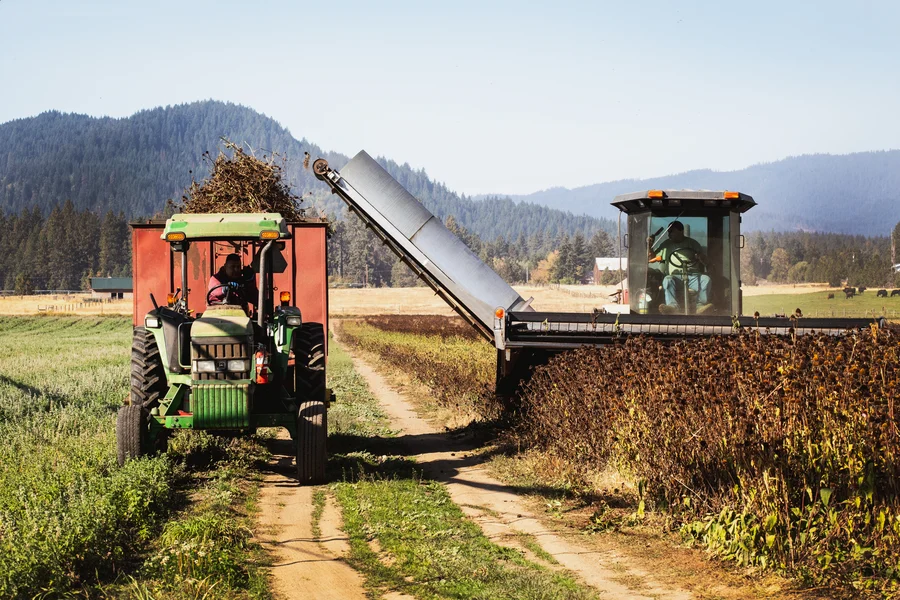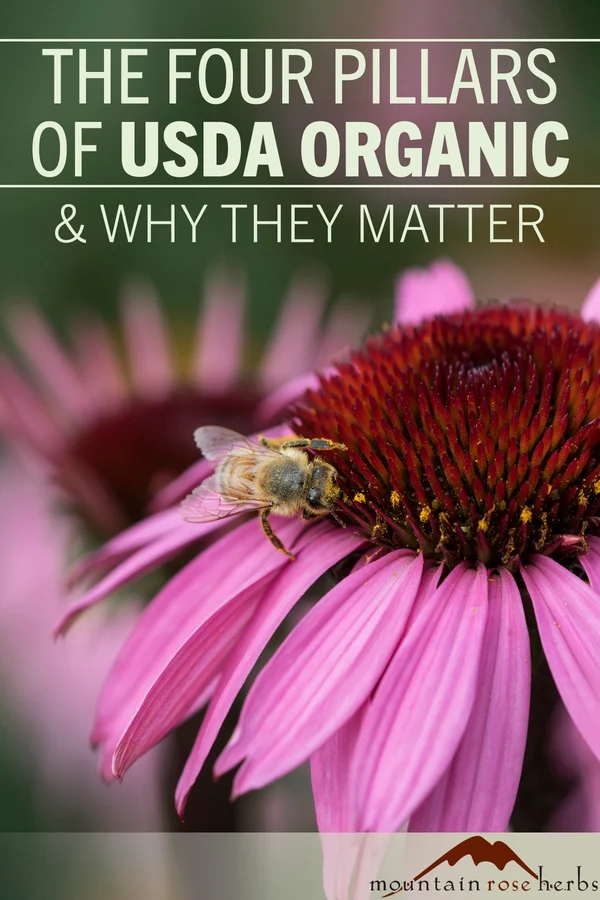When people think of "organic," they often have trouble understanding exactly what it means. Many aren't familiar with the regulatory and enforcement processes that maintain the integrity of the organic seal. In response, the United States Department of Agriculture (USDA) has created four simple yet comprehensive pillars that define the USDA organic label. Each pillar highlights a critical aspect of the National Organic Program's (NOP) approach to creating and enforcing organic regulations.
At Mountain Rose Herbs, we've been committed to organic certification for years. Organic farming ensures that harmful pesticides stay out of our bodies and the environment. We recognize how vital wellness is for both you and the planet. It's essential to know how to spot misuse of the term "organic," and we’ve put together this guide to help us work together toward healthier living. Being a mindful consumer today means ensuring the safety of what you eat, drink, and apply to your skin—goals that organic products can help you achieve.

### The Four Pillars of Organics
#### Protected by Law
The USDA organic label is the only government-endorsed marketing claim for organic food in the U.S. Only products made according to USDA organic standards can display the organic seal. The USDA establishes and rigorously enforces these standards to specify which practices and materials are allowed in organic farming and handling. The organic seal is a registered trademark, enabling the USDA to penalize operations falsely using it to pass off non-organic items as organic. This safeguard protects the authenticity of the organic label and prevents fraudulent goods from entering the U.S. market. Additionally, the NOP investigates complaints, disciplines violators, and certifies inspectors.
#### Inspected Yearly by Experts
Every organic farm and business undergoes annual certification and inspection by accredited certifiers. Trained inspectors visit each organic operation yearly to verify compliance with organic standards. Surprise visits and tests are also part of the process. The USDA regularly reviews certifiers to ensure they uphold the organic label’s integrity. Becoming certified organic requires a thorough examination to demonstrate adherence to organic guidelines.

#### Traced from Farm to Store
The Strengthening Organic Enforcement rule strengthens the USDA’s oversight and enforcement capabilities while tracking organic products back to their source. Farms and businesses meticulously document their organic production, purchases, and sales. This system allows companies to select trustworthy suppliers and validate the authenticity of their offerings. Certifiers audit supply chains to stop fraud before it reaches shelves. The NOP maintains the Organic INTEGRITY Database, providing current and accurate data about operations selling organic products. Together, these measures guarantee consumers receive genuine organic items.
#### Shaped by Public Input
Stakeholders and the public can share feedback via public comments to influence final policies. The organic standards are shaped by recommendations from the National Organic Standards Board (NOSB), a volunteer advisory group representing the organic community. Stakeholders and the public can participate in bi-annual NOSB meetings to offer insights on recommendations.
---
Are you curious about Mountain Rose Herbs’ sustainability efforts? Discover how our For Life Certification helps us measure social responsibility! You might also enjoy reading about our steps toward transparency in the herbal industry, sourcing organic ingredients from the Pacific Northwest, and the benefits of organic farming.

---
Living an organic lifestyle isn’t just a trend—it’s a commitment to health, the environment, and future generations. Join us in embracing organic principles to create a better world for everyone.
Omega-3 Fish Oil
Omega-3 Fish Oil,Fish Oil 10/50 Tg,Omega 3 Fish Oil,10/50 Tg Fish Oil
ZHOUSHAN SINOMEGA BIOTECH ENGINEERING CO.,LTD , https://www.sinomegabiotech.com